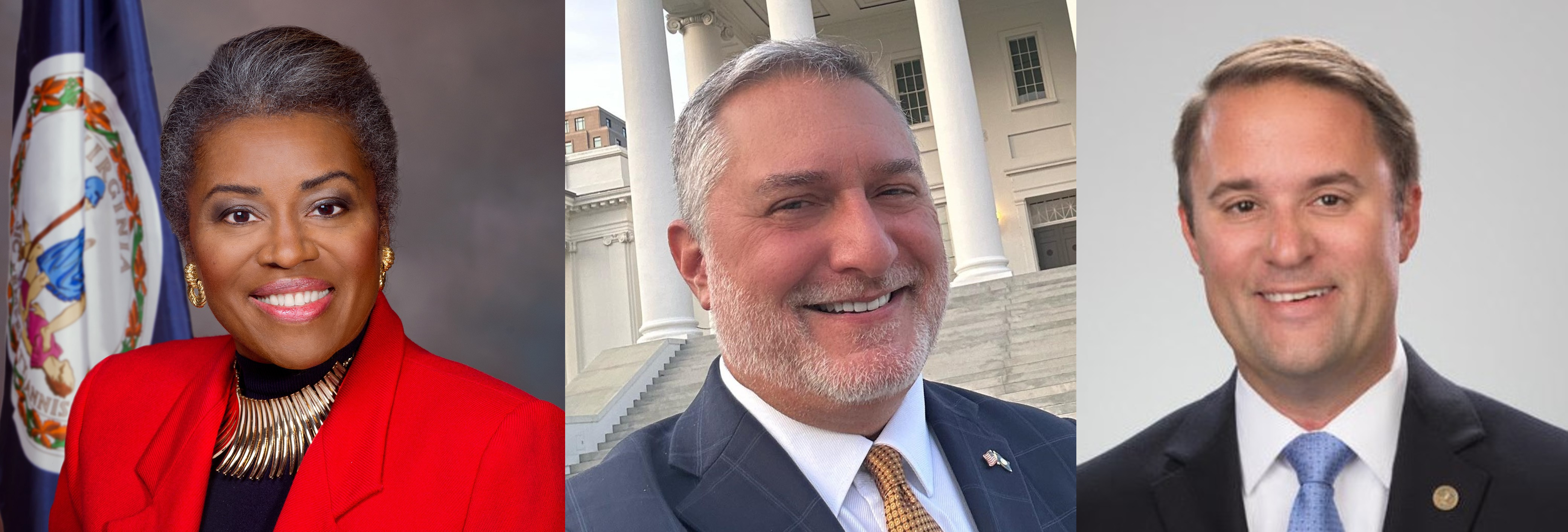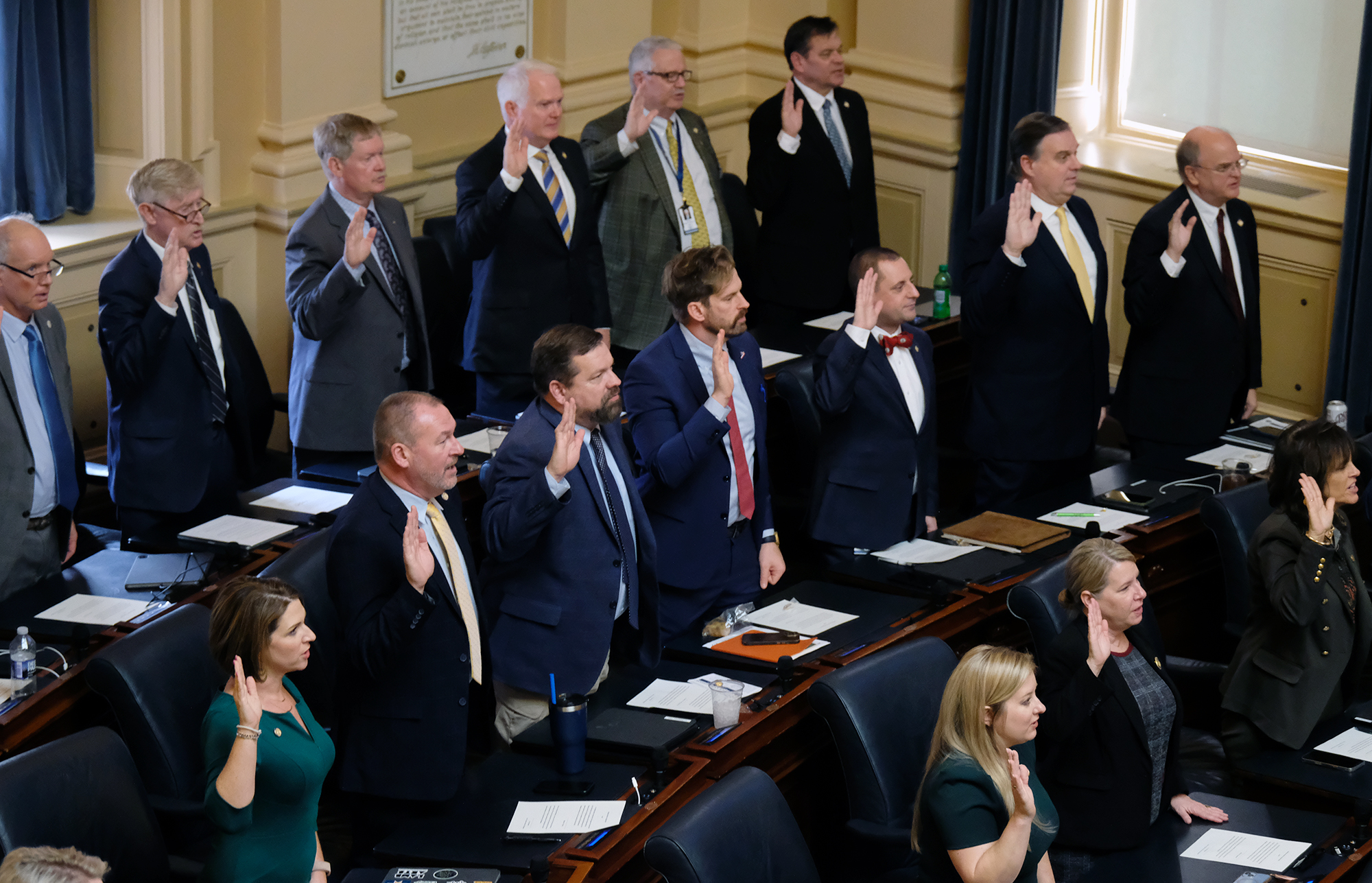Nine weeks from today, the first votes will be cast in Virginia’s 2025 elections. With early voting, we can no longer call these “fall elections” because the voting actually begins in what are technically the last days of summer.
While anything other than a presidential election is often considered an “off-year” election, this is actually one of the busiest election cycles Virginia has. This year we’ll not only elect a governor, lieutenant governor and attorney general, we’ll also pick 100 members of the House of Delegates, plus lots of local offices — some (but not all) boards of supervisors, city councils, town councils, school boards and the so-called “constitutional offices” of commonwealth’s attorney, sheriff, commissioner of revenue and treasurer.
This is an off-year for those local offices; the bulk of them will be on the ballot in 2027, but if you’re a community where those offices are on the ballot this year, it’s not an off-year election at all.
We’ve known for some time now who the statewide candidates are, but the State Board of Elections has now released the full list of who’s on the ballot, so here’s a summary of who we’ll be voting on this year — along with an update on our Voter Guide.
No independents for statewide office


This will be the first two-way governor’s race since 2009. Fun fact: In 14 of the past 20 gubernatorial elections (which takes us back to 1945), we’ve had at least one independent or third-party candidate on the ballot. None have fared particularly well, rarely picking up more than 1% of the vote.
I laid out some of the ways that this year’s statewide races are historic in a previous column, so no need to repeat all that. However, this is a good time to point out that we sent questionnaires to the six statewide candidates in early May and have now published their responses — well, for the ones who have responded. The ones who haven’t still can, so if you’re a supporter of one of those “missing” candidates, feel free to encourage them to get their message out. You can read all the responses on the main page of our Voter Guide.
Democrats contest every House seat, Republicans don’t

Democrats have fielded candidates in all 100 House seats; some of those are due to the long-distance recruitment efforts of California doctor Fergie Reid Jr., the son of former Del. Ferguson Reid, who in 1967 won a Richmond-area seat to become the first Black member of the General Assembly since a brief period of civil rights progress after the Civil War.
Republicans will have candidates in 85 districts — meaning Democratic candidates in 15 districts are unopposed.
There are two theories on this. One is that a party should compete everywhere, even if it knows that many of those districts are predictably red or blue. The other is that a party shouldn’t waste its resources on no-win candidates in lopsided districts.
There’s no particular right or wrong. As with many things in politics, this is somewhat a matter of taste. There is, however, an argument that parties should contest every seat when there’s a statewide race — a candidate in one of those no-win districts can still help gin up turnout for the party’s statewide candidates. That won’t help the local candidate win, but could help the statewide candidate. Think of how a Democratic candidate in strongly Republican Southwest Virginia might be able to squeeze out some extra votes for the statewide ticket, just as a Republican candidate in strongly Democratic Northern Virginia could do the same.
Of note: I said that Republicans will have 85 candidates. At the moment, they have 84. Todd Gilbert of Shenandoah County has resigned his seat to become interim U.S. attorney for the Western District of Virginia. While the ballot has been closed, state law does allow parties to replace a candidate up until a certain date if a candidate dies or withdraws. Gilbert has withdrawn, so Republicans are in the process of picking a new candidate to succeed him.
We’ve sent questionnaires to all the House candidates in the state; we’ll publish those on our Voter Guide in August (we have a lot of work to do first in building out additional sections of the guide so we have a place to put all those answers). We’ve heard from one candidate who said he only intended to fill out questionnaires if someone in his district asked for it, so feel free to tell your local candidate you’d like to see their answers.
We have a new party in Virginia
No, it’s not Elon Musk’s America Party. It’s the Forward Party, a centrist party founded by another technology entrepreneur, Andrew Yang, who you may recall from his 2020 campaign for the Democratic nomination for president. We saw a few Forward Party candidates for local offices last year in Northern Virginia. This year, there are two Forward Party candidates on the ballot for the House of Delegates: Brandon Givens in House District 11 in Fairfax County, now held by Democrat David Bulova, and Kristen Farry in House District 72, which covers Amelia, Nottoway and Powhatan counties, as well as part of Chesterfield County. That seat is now held by Republican Lee Ware.
Most of our supervisor races are unopposed
We have 82 supervisor seats on the ballot across Cardinal’s coverage area in the western part of Virginia. Of those, 46 — 56% — are uncontested. In some counties — Bedford, Bland, Floyd, Lunenburg, Montgomery, Roanoke, Tazewell and Washington — every supervisor candidate on the ballot is unopposed. I can only conclude that voters in those counties are quite satisfied with the direction of their local government.
Some voters have already missed their chance to participate
Six of those 46 supervisor candidates who are running unopposed ran and won in Republican primaries in June. In effect, those primaries weren’t just tantamount to election; that was the election.
The local primary that drew the highest voter turnout in the state was in the Buchanan District in Botetourt County, where 21.3% of registered voters cast ballots. The Amsterdam District in Botetourt had the third-highest turnout in the state, 18.7%.
The lowest turnout in a local primary in June was in the Beverly Manor District in Augusta County, where just 4.4% of the voters bothered to cast ballots, according to the Virginia Public Access Project. Stephen Grepps won that primary with just 51.98% of the vote and a margin of 13 votes. There are several ways to look at this now that we know Grepps is unopposed in the general election: About 2.2% of the voters in the Beverly Manor made the decision for the rest of the district. Or maybe those 13 voters did. This is why primaries are important, especially in places where one party dominates.
71% of our school board races are unopposed
That 56% of supervisor races being unopposed is small compared to school board races. Out of 81 school board races across Cardinal’s coverage area, only 24 are opposed — 29%, meaning 71% are unopposed.
Running for office — and then serving in office — is harder than it looks. It takes time and, particularly in the social media era, subjects people to public criticism that is often unrelenting. I can’t prove this, but I suspect social media has had the effect of discouraging good people from offering themselves for public service. Think about that before you post your next rant.
On the other hand, school boards are one of the easiest offices to seek. No party politics are required; by law, everyone must run as an independent. Schools have also become cultural battlegrounds in recent years. You’d think that would draw out more candidates.
Elected school boards are, in historical terms, a recent innovation in Virginia, starting in the 1990s, and not every locality adopted them at the same time. The State Board of Elections’ digital records for school board elections don’t go back that far, so it’s possible some elections aren’t listed. However, we can safely say this: In the Royal Oak District in Smyth County, there may never have been a contested school board election. Since 2001, the first election listed, every school board election in that district has been unopposed — no different this year. In the Chilhowie District in Smyth County, there was a contested school board election in 2001 and none since.
In Buena Vista, four at-large school board seats are available, but only three candidates are on the ballot, so someone will win by write-in votes there.
Campbell, Roanoke and Wise counties have contested school board races for every available seat
There are exceptions to almost everything: Campbell, Roanoke and Wise counties are the exceptions to the litany of uncontested school board seats. In those three counties, every available seat is contested. In Campbell, those are the Brookneal, Rustburg and Timberlake districts. In Roanoke County, the Hollins, Vinton and Windsor Hills districts. In Wise, districts 1, 2, 3 and 4.
And yes, we’ve sent questionnaires to all these candidates, opposed or otherwise. (In fact, two of the first three candidates who have responded are unopposed.)
Two longtime prosecutors are retiring
Donald Caldwell became Roanoke’s commonwealth’s attorney in 1979. He’s now retiring after 46 years in office. He started off as a Democrat but more recently has run, and won, as an independent. His deputy, John McNeil, is the sole candidate on the ballot. He’s a Democrat.
In Salem, independent Tom Bowers is retiring after 20 years. Matthew Pollard, also an independent, is the only candidate running.
Charlotte County, Lynchburg and Staunton are the only localities in the western part of the state with contested races for the top prosecutor.
Three sheriffs face opposition
This isn’t a big year for sheriff’s elections, but we do have three places where incumbents are being challenged: in Buena Vista, Roanoke and Lexington/Rockbridge County, which share a sheriff.
A few places have other contested races
Bristol, Martinsville, Norton and Radford have contested races for commissioner of revenue. Lynchburg, Martinsville and Radford have contested races for treasurer.
We’ll be working over the coming weeks to build out the rest of our Voter Guide, which will feature individualized pages for every county and city in the state, so you can see who’s on the ballot in your locality. By the time that’s done, we hope candidates have responded to the questionnaire, and we’ll merge all that together and publish the responses. I’d be remiss if I didn’t point out that all this labor does cost something, so if you’d like to support making this kind of information widely available, may I suggest you become a Cardinal News member to support independent journalism. Here’s how.
Want more political news and analysis? Sign up for our weekly political newsletter, West of the Capital, that goes out on Friday afternoons:



